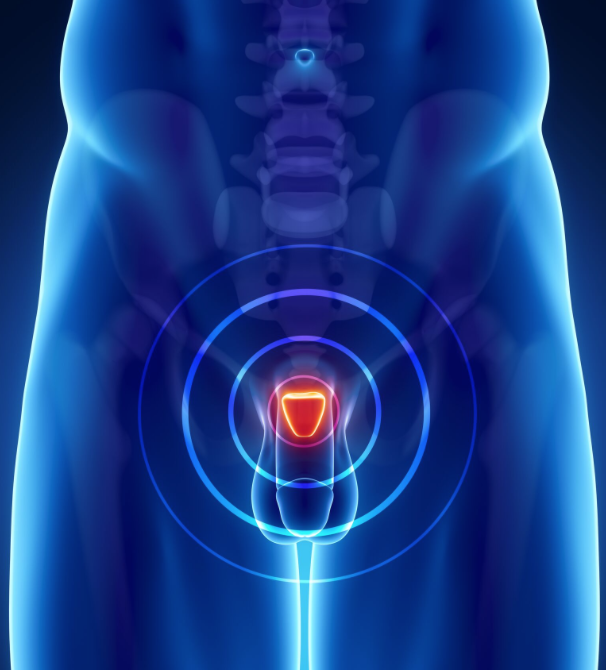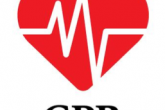
A Prostate cancer diagnosis can change your life forever. The emotional, physical, financial, and social challenges of cancer deeply impact the patient and his family. As a patient, when you hear for the first time that you have cancer, the diagnosis, more than all other medical conditions, is devastating. Time stops still. It feels like all the air is sucked out of the room and you can’t breathe. You don’t hear a single word that the doctor says after that.

What is Prostate cancer?
Prostate cancer starts when cells in the prostate gland begin to grow out of control. Every human body is made up of billions of cells. In almost any part of the body, cells can become cancer cells, and also spread to other areas of the body.
The prostate is part of the male reproductive system, which also includes the penis, prostate, and testicles. The prostate can be found just under the bladder and is about the size of a walnut.
As men age, the prostate tends to grow in size causing an obstruction and reducing urine flow. This is benign prostatic hyperplasia and is different from prostate cancer.
What do we know about Prostate cancer?
Rates of cancer have doubled in many African countries over the last 20 years.
- Prostate cancer is one of the most common types of cancer in men. It is the most commonly diagnosed cancer and second leading cause of cancer deaths in African men.
- Prostate cancer tends to grow slowly. In the early stages, it remains in the prostate gland, where it may not cause serious harm.
- For unknown reasons, African men tend to have aggressive forms of Prostate cancer that spread quickly. Africans also develop it at a younger age.
- Prostate cancer is treatable, but early detection – before it has spread beyond the prostate gland – is the key to successful treatment.
What can increase your risk of prostate cancer?
- Older age. Prostate cancer risk increases as you age.
- Black race. Black men have a higher risk of prostate cancer than other races. In black men, prostate cancer is also more likely to be aggressive or advanced.
- A Family History of Prostate or Breast cancer. Men with a father, brother, or son who has had prostate cancer are at greater risk of developing it themselves. Also, if you have a strong family history of breast cancer, your prostate cancer risk may be greater.
- Obesity. Obese men with prostate cancer may be more likely to have advanced disease that’s aggressive and harder to treat.
- Diet – Men who eat a lot of red meat or high-fat dairy products and eat fewer vegetables and fruits appear to have a slightly higher chance of getting prostate cancer.
- Chemical exposures – There is some evidence that fire-fighters can be exposed to chemicals that may increase their risk of prostate cancer.
Detecting Prostate cancer early
Screening tests can help find cancer at an early stage, when it may be easier to treat or cure. Often, by the time symptoms appear, cancer may have grown and spread making it harder to treat or cure. Two tests are used to screen for Prostate cancer:
- Digital rectal exam (DRE): A doctor or nurse inserts a gloved, lubricated finger into the rectum to check the size of the prostate and feels for any abnormalities.
- Prostate-specific antigen (PSA) test: measures the level of PSA in the blood. PSA is made by the prostate and can be higher in men who have prostate cancer. The PSA level may also be high in other conditions that affect the prostate such as infection, inflammation, and enlargement.

What are the signs and symptoms of Prostate cancer?
Early prostate cancer usually causes no symptoms, which is why cancer screening is so important. More advanced prostate cancers can begin to push on or damage nearby organs, blood vessels, and nerves causing symptoms, such as:
- Problems urinating
- Blood in the urine or semen
- Trouble getting an erection (erectile dysfunction)
- Painful ejaculation
- Pain in the back, hips, chest, or other areas from cancer that has spread to bones
- Weakness or numbness in the legs or feet, or even loss of bladder or bowel control from cancer pressing on the spinal cord
Is it possible to prevent Prostate cancer?
Even if you have the genetic tendency for the condition, you can make lifestyle changes that can reduce your risk for Prostate cancer:
- Eat a better diet, including reducing red meat, less fatty foods, more fresh fruits, vegetables and whole-grain foods.
- Regular exercise – at least 30 minutes a day
- Maintain a healthy weight
Remember that screening guidelines for early detection of Prostate cancer recommend that all black men begin screening at 45 years and 40 years if there is a family history of Prostate or Breast cancer.

